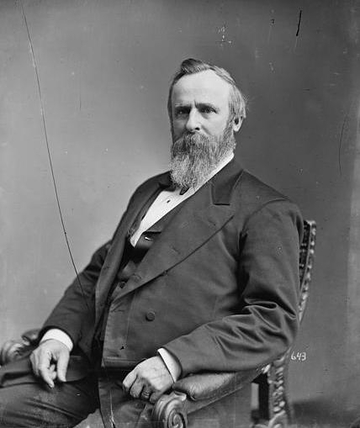The Tenth Census: Census Day was June 1, 1880.

Authorizing Legislation
The act authorizing the 1880 census gave supervision of the enumeration to a body of officers, known as supervisors of the census, who were specifically chosen for work on the census. The superintendent of the census and all supervisors were to be presidential appointees, subject to Senate confirmation. The terms of both were to expire when the census results were compiled and published.
Enumeration
Each supervisor was responsible for recommending the organization of his district for enumeration, choosing enumerators for the district and supervising their work, reviewing and transmitting the returns from the enumerators to the central census office, and overseeing the compensation for enumerators in each district.
The census act required each enumerator “to visit personally each dwelling house in his sub-division, and each family therein, and each individual living out of a family in any place of abode, and by inquiry made of the head of such family, or of the member there of deemed most credible and worthy of trust, or of such individual living out of a family, to obtain each and every item of information and all the particulars.” In case no one was available at a family’s usual place of abode, the enumerator was directed by the law “to obtain the required information, as nearly as may be practicable, from the family or families, or person or persons, living nearest to such place of abode.”
The census act also provided for the collection of detailed data on the condition and operation of railroad corporations, incorporated express companies, and telegraph companies, and of life, fire, and marine insurance companies (using Schedule No.4 – Social Statistics). Fines were to be imposed on officials of “every corporation…who shall…willfully neglect or refuse to give true and complete answers to any inquiries authorized by this act.”
In addition, the superintendent of census was required to collect and publish statistics of the population, industries, and resources of Alaska, with as much detail as was practical. An enumeration was also made of all untaxed Indians within the jurisdiction of the United States.
The 1880 decennial census was taken on five schedules: “Population,” “Mortality,” “Agriculture,” “Social Statistics,” and “Manufacturing.”
Further Information
- A wide variety of historical statistics from this and other decades is available in Historical Statistics of the United States: Colonial Times to 1970. It is available as a PDF [74.4MB] or 2-part ZIP file: Part I [52.2MB] | Part II [66.1MB].
- Reports and statistics from the 1880 Census
- History and Growth of the United States Census: 1790-1890 [PDF 117MB], by Carroll D. Wright and William C. Hunt.
Information provided from Census.gov

